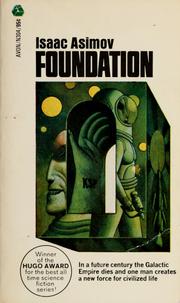Presented two papers at the inaugural Conference on
Fairness, Accountability, and Transparency; one with the PIReTs,
and another with Hoda Mehrpouyan and Rezvan Joshaghani.
Published a CHI workshop paper on fairness in privacy tradeoffs
with Bart Knijnenburg, Hoda Mehrpouyan, and Rezvan Joshaghani.
Submitted a paper to SIGIR (rejected).
Submitted a proposal to NSF CyberLearning (declined).
Won an NSF CAREER award.
Saw Hamilton (the traveling company in
Portland).
Book chapter with
Daniel Kluver and Joe Konstan went to press.
Bought a road bike and began recreational distance riding. I got
up to being able to do 30mi rides before winding down for the
weather.
Co-organized the FairUMAP workshop on fairness
in user modeling and personalization with Bamshad Mobasher, Robin Burke,
and Bettina Berendt.
Oversaw build-out of the LITERATE prototype and
carried out user study with fantastic collaborators Sole Pera and
Katherine Wright.
Ran a very successful RecSys 2018 with Sole Pera and our amazing
organizing committee.
Published and presented our work on author gender in RecSys
2018.
Taught CS 410/510 (Databases) in both fall and spring.
Taught CS-HU 310, our one-credit database introduction, in the
summer.
Substantially improved my response time in grading student
work.
Published two workshop papers and contributed to a NRMERA conference talk about the LITERATE
project.
Supervised my M.S. student Mucun Tian to his first first-author
paper, a work-in-progress piece for
the REVEAL workshop on offline evaluation.
Co-organized the second FATERC Workshop on Responsible
Recommendation, with more than 50 registered and a full room all
day.
With Fernando Diaz and Asia Biega, proposed and had accepted a fairness track for TREC
2019.
With Michael Veale, organized publicity & outreach for ACM FAT* 2019 as Publicity
& PR Co-chair.
Rebuilt LensKit in Python (project, paper).
Began supervising my first Ph.D student, Amifa Raj.
Submitted a proposal to the NSF 2026 IDEA Machine with Sole Pera,
Hoda Mehrpouyan, Cathie Olschanowsky, and Elena Sherman.
Sat on commmittees for two successful Ph.D proposals (Ion Madrazo
Azpiazu and Kimberley Gardner).
Gave invited seminar talks at CMU and Clemson.
Reviewed a number of papers, though not as many as last
year.
Redid my academic visual identity with a website refresh and
change of standard font.
I did not submit nearly as many grant proposals this year as last,
because I received the CAREER early in the year and needed to focus on
getting that research going along with RecSys organization.


